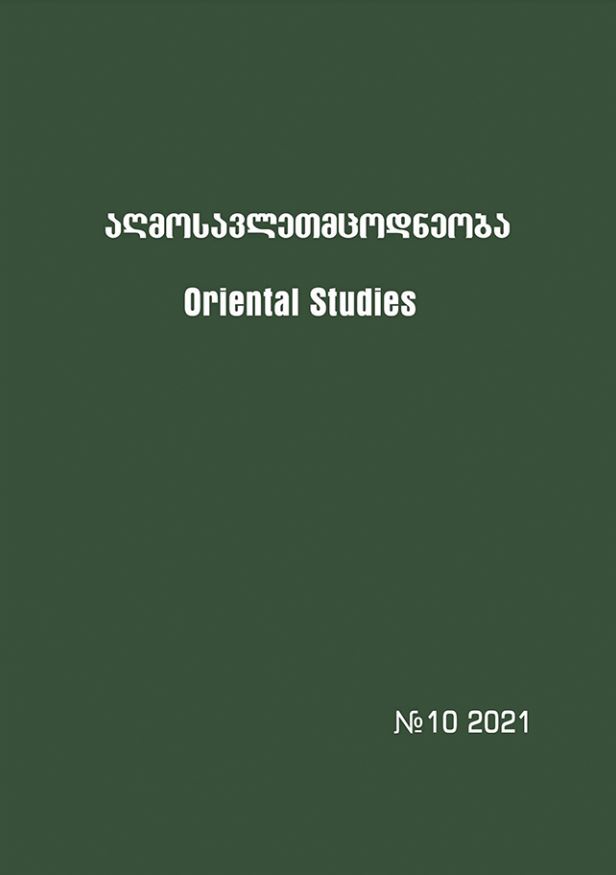Fairy-Tale Land of Women in Literary and Folk Oral Narratives
Main Article Content
Abstract
The myth of the land of warrior women is mainly known from Ancient Greek tradition. The myth is based on a polarization of the two sexes. This theme
is also well-known in narrative traditions of Near Eastern and Europe, both in literary and oral forms. Important literary sources for the legend about places
where the warrior women live are histories by Herodotus, Egyptian story of Prince Pedikhons and Queen Serpot, Persian romance of Queen Zarina, Chinese
folk songs on Hua Mulan as well as folk oral narratives. In the article, there are discussed the fragments from the Thousand and One Nights: the tales of King Umar ibn al-Numan and Hasan from Basra. Theses tales show motif parallels with some Georgian folktales. According to the Motif-Index of Folk-Literature by Stith Thompson, in these Georgian folktales following international motifs are included: J2411.1: Imitation of magic rejuvenation unsuccessful; F112: Journey to Land of Women, island of women, land of maidens, country of the Amazons,"maidenland"; F565: Women warriors or hunters; F565.1. Amazons; D1610: Magic speaking objects.
The themes of warrior woman in Arabian Nights and in Georgian folktales, examined in this article, follow a stereotypical pattern. In most cases a warrior woman has to be vanquished in a wrestling duel before she will accept a suitor as
her husband.
